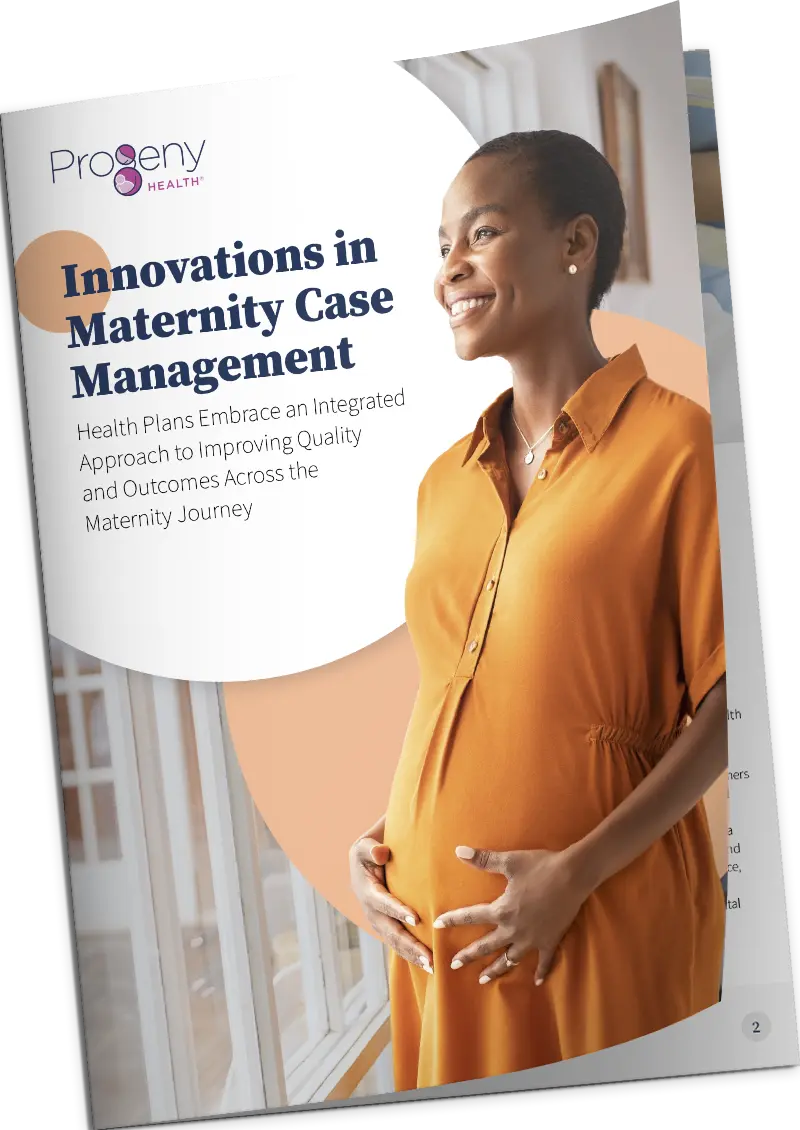
Social Determinants Demand Holistic Solutions in NICU Care

In September, NICU Awareness Month, we want to acknowledge that many factors outside of “typical” medical conditions demand holistic solutions in neonatal care. Deficiencies in the social determinants of health can become obstacles that lead to increased risk and poor outcomes, especially within this clinically vulnerable population. Consequently, providers, payers, and caregivers must work together to identify and address these factors which can negatively impact the health status of these infants.
The CDC has elevated the attention given to social determinants by focusing some of its key programs in these areas. These programs work across sectors such as housing and transportation, and in collaboration with communities, because working together can have a greater impact than working alone. Similarly, the federal government’s prevention agenda for building a healthier nation – Healthy People 2020 – highlights the relevance of social determinants by including this as one of their four key goals for the decade: “Create social and physical environments that promote good health for all.
Our team at ProgenyHealth is exclusively dedicated to NICU care management. We partner with plans across the country to identify social determinants of health and solve for them, while also collaboratively working with providers to manage utilization of health services which in turn optimizes costs. As a partner focused entirely on managing the health and wellness of our client’s premature and medically complex newborns, we put experienced nurses in regular contact with the families of infants admitted to NICUs. These Nurse Case Managers (CM) assess the medical status of the infant, the social supports of the family, and the environment in which they live through a comprehensive needs assessment and subsequent telephone conversations.
Learn How ProgenyHealth Solves for SDoH
ProgenyHealth’s clinical team continually refines our model and program to best support our health plan clients and their NICU members and families, in the hospital, and at home. Our CM team has developed advanced training tools specific to social determinants of health and revised their case management assessment instrument to include both needs identification and the recommended follow-up to ensure the need was met. Additionally, our team utilizes a national database that identifies validated resources for social determinant support and resolution by geographic region. Since deploying this new resource, in less than a year our CM team has conducted nearly 12,000 searches for baby items, food pantries, housing resources, transportation assistance, and social supports for caregivers. This has allowed our case managers to direct and connect families to the appropriate local resources to meet their needs real-time.
Commenting on this commitment, Madeline Szabo, SVP of Clinical Operations at ProgenyHealth, states that, “We realize the deep, often overlooked impact that social determinants of health can have on a family. We’ve invested time and resources into our staff and systems so that we can better assess these needs with the families we serve. The result is that we can not only identify these problems, but directly intervene to solve them. And that means the family is better able to focus on caring for their new baby.
The vast majority of our health plan clients are also similarly focused on identifying and resolving social determinant needs, and many include them within their strategic initiatives. AmeriHealth Caritas of Pennsylvania has been one of ProgenyHealth’s long-standing clients. Together, we have tackled clinical challenges faced by thousands of NICU members and shared in the successful resolution of many barriers to good health – basic human needs that were previously inadequate or inaccessible to the mother, caregiver, or family.
A recent AmeriHealth Caritas case involving a mom we’ll call “Rita” illustrates the harsh realities that some of our client’s members may face when bringing their infant home from the NICU…
Rita was a single mom of two children, homeless and living in a motel when her daughter was born and admitted to the NICU. After two weeks, her daughter was discharged from the hospital and the family moved in temporarily with Rita’s friend. There was no stable environment as the family frequently moved from one friend’s house to another. It was at this time when Patricia, the ProgenyHealth CM, spoke with Rita and learned about her housing challenges and that she was also struggling to obtain important baby items, such as diapers. Patricia provided Rita with appropriate resources in order to obtain these much-needed supplies and assisted with her application for transitional housing so Rita could find a more secure place to live. Rita successfully obtained an interview for such housing and Patricia took the time to review questions with Rita so she would be well-prepared and less nervous during the interview process. Ultimately, Rita was approved for transitional housing and her family moved into a safe and secure home. With this barrier to care addressed, Rita could focus on the wellbeing of her family, and in particular, her NICU baby who required special care and attention.
Read our NICU SDoH Success Stories
Marge Angello, AmeriHealth Caritas’ Market President, commented, “Our members live in areas of Pennsylvania where social determinants can be true impediments to good health. Progeny has been an outstanding partner. Their clinical expertise in the NICU arena has helped us to manage the care of these infants effectively, and they are completely committed to identifying and addressing the social determinants of health often found in this fragile population.”
There are countless ways in which social, economic, and environmental conditions have been adversely linked to health outcomes. These confounding factors require holistic solutions involving payers, providers, community resources, and families. Recognizing this, our model at ProgenyHealth involves Neonatologists, Pediatricians, Nurses and Social Workers working together to identify and address all deterrents to optimal health in the NICU population we serve.
During NICU Awareness Month, we would like to say thank you to the clinicians at ProgenyHealth, the NICU community providers, and our forward-thinking health plan clients for their commitment to improving the health outcomes of these high-risk newborns. Subscribe to our NICU Insights Blog to learn more about the work that we do to support this population.








 Prev
Prev